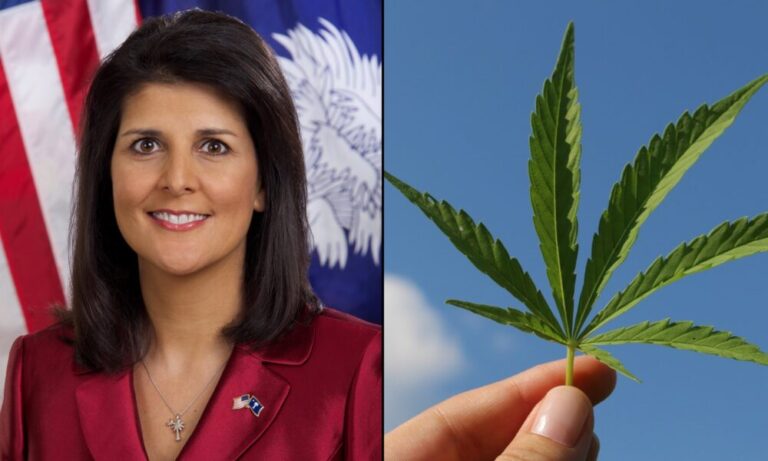Former South Carolina Gov. Nikki Haley (R), a 2024 Republican presidential candidate, says that it’s “really important” that states have the right to set their own marijuana policies regardless of ongoing federal prohibition.
As the race for the party nomination starts to heat up, Haley briefly discussed her cannabis position in an interview with WMUR -TV that was published on Friday.
Asked whether she would take marijuana reform action at the federal level if elected, Haley emphasized that she’s a “states’ rights person.”
“I think these types of decisions are best decided at the state level,” she said. “It’s where people can show the power of their voice. Some states will want to see it, and that allows them the right to do that. Some don’t want to see it, and that allows them that right.”
“I always, especially as a governor, believe that the freedoms of people to decide what it is they want in their state are really important. We need to stay true to that,” she said.
Haley, who also served as United Nations (UN) ambassador under President Donald Trump, doesn’t have an especially extensive cannabis background. But she did sign limited reform legislation into law during her time as governor. And she’s expressed openness to continuing conversations with advocates and lawmakers about the issue.
During her time as governor, she also appeared sympathetic to patients who’ve benefitted from medical cannabis. She signed legislation in 2014 that allows doctors to prescribe cannabidiol oil to patients suffering from severe epilepsy and for whom conventional therapies proved ineffective, for example.
The same year, Haley put her signature on a bill to legalize industrial hemp in South Carolina and remove the nonintoxicating form of the cannabis plant from the state’s definition of illegal marijuana.
But overall, her cannabis record is light, and the new interview seems to be the first time she’s discussed the issue since announcing her candidacy earlier this year.
The race of the GOP presidential nomination is getting more crowded, though former President Donald Trump remains the frontrunner by a significant margin, according to polling.
Other major candidates for the party nomination include Florida Gov. Ron DeSantis (R), U.S. Sen. Tim Scott (R-SC) and former Arkansas Gov. Asa Hutchinson (R).
